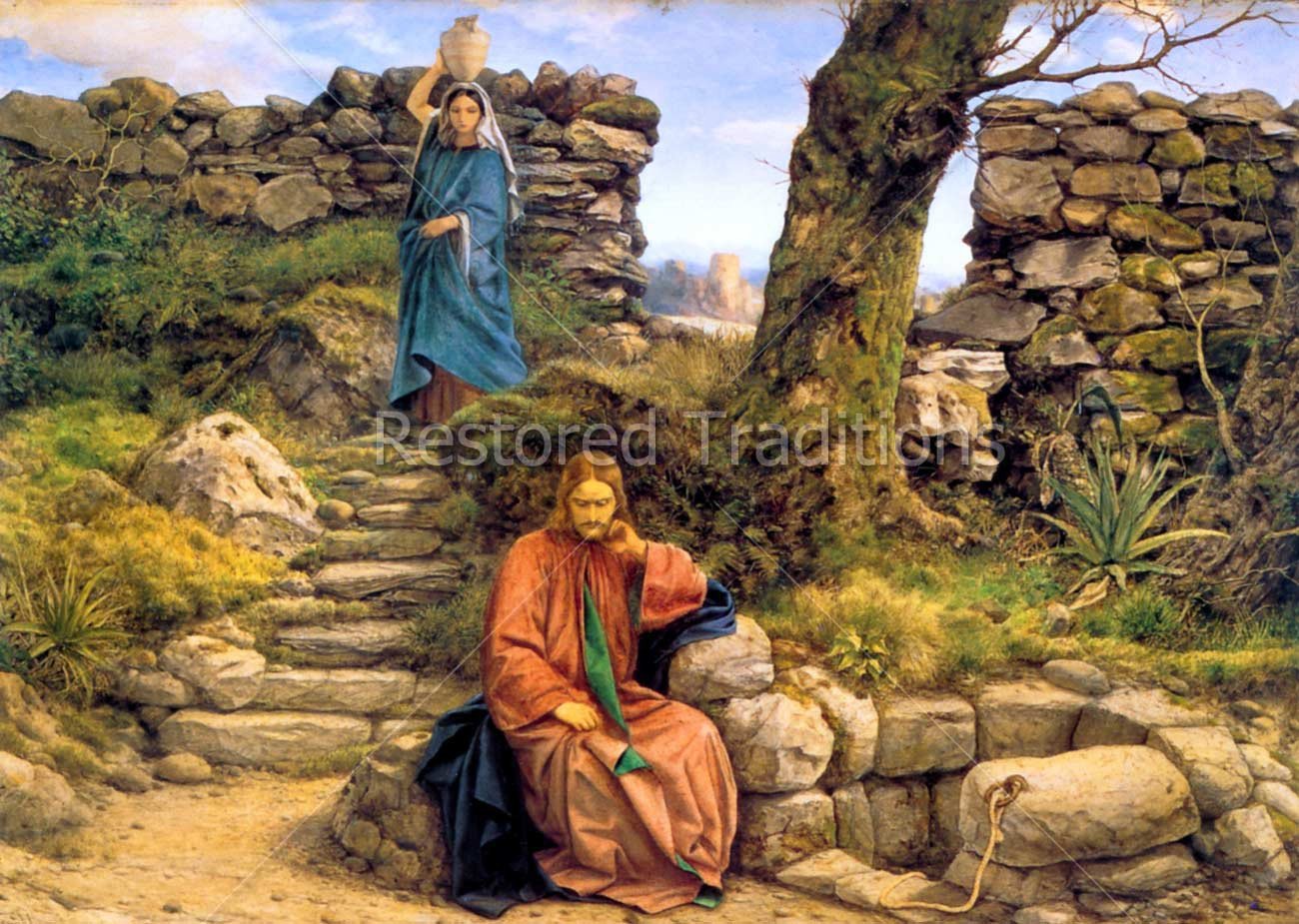This is something I wrote a couple of years ago and am interested to see what feedback it might produce here. Though poetry is its starting point it is of course about creativity and art in all their manifestations.
What is “Good Poetry”?
Trying to defining what poetry is is certainly worthwhile doing but having a clear understanding of what we mean by “good” is more important. We start to get this by by expanding the question to, “What is good art?” To make a judgement about the merit of any poem or any piece of artistic expression three things need to be considered. - Form - Content – Intent.
Form
Strangely, in poetry, discussions about forms seem to use up more time and energy than in the other arts. Form of course is important but it is primarily a container. We can say about a sonnet or a sonata, it's good (well done), ok or rubbish, and be talking about it's construction its form. In the classical “form” of painting realism and true perspective are expected and those things are taken into account when judging how “good” a painting is. In the naïve “form” of painting they are not, but a judgement can still be made as to how “good” or not the naïve painting has been crafted, according to the criteria of that particular form. Free verse is a “form” of poetry and can be rated as to how well it conforms to that form.
Judgements of form are an important part of any complete critique. They are easier to make and usually less controversial than judgements of content and intent. The original Greek meaning of the word poet includes the idea of, maker, craftsman and the word artist also contains within it this same notion. Whatever the form in whatever art-form, a full critique of a work must pose questions such as, How well made is it?, Does it work, does it hold together technically?, How “good” is it on that level?
Content
It is possible to drink superb wine from a cracked cup. Likewise, one could drink dishwater from a flawless, cut glass goblet. In both cases it is the content that is the most important thing. The containers are not unimportant but it is what we take in from them that stays with us and effects what we become. Art (even at it's lightest) is soul to soul communication. It is the message contained within and transmitted by a poem (or any work of art) that also needs to be judged. What is it really saying? Is what it's saying true? Is it “good”? Lies usually present themselves as truth and ugliness by wearing a funny hat or a beautifully woven cloak can seem very attractive. Sometimes of course the content may just be inconsequential wadding.
But a “good” poem must surely be one that “does” good. Which may not always be the same thing as making the hearer “feel” good. Now, of course, we have entered the swampy mine-field of moral subjectivism and relativism. Form, of itself, is amoral but content has always the possibility to be good or bad in the moral sense and not just in a technical sense. However if we try to judge how well the content serves to bring about the intent of the artist that is a technical judgement. That is why in any critique the most important consideration and the most difficult is ….
Intent
What was/is the poet's/artist's intention in bringing into existence any particular work? Does the artist want want it to produce “good” (in the moral sense) outcomes? Closely tied to this is motivation. What exactly is it that moves us and gives us the desire and drive to produce and present our work? Intent, if ever we are able to know it, is always a matter of good and bad in the moral sense and should so be judged.
Form, content and intent can be thought about separately but of course the reality is that it's all three in combination that make the poem what it is. As a poet I want to produce superb wine in flawless cut-glass goblets or maybe more realistically, refreshing tea in homely mugs. Never mind how far I'm falling short of that, that's the intent and motivation. Poets (artists) should critique their “work”, through the form, content, intent prism when trying to deciding how “good” or not it is.
We live in an age where talk of moral judgement in art (probably more than in any other area of life) is ridiculed by a great many. The notion that good and bad (other than in a completely hedged, relative and subjective manner) might be legitimate words to use to describe a work of art is not nowadays cool. The idea that things mean whatever you want them to mean and that their “worth” is whatever value anyone chooses to give them with no concern for, or belief in, any universal, inclusive frame of references is all pervasive these days. It is a rationale that is destructively false and at its end produces only kingdoms of chaos. The intention of a “good” poet should always be to write “good” poetry.
¤¤¤¤¤¤¤¤¤¤¤¤¤¤¤¤¤¤¤¤¤¤
><>
What is “Good Poetry”?
Trying to defining what poetry is is certainly worthwhile doing but having a clear understanding of what we mean by “good” is more important. We start to get this by by expanding the question to, “What is good art?” To make a judgement about the merit of any poem or any piece of artistic expression three things need to be considered. - Form - Content – Intent.
Form
Strangely, in poetry, discussions about forms seem to use up more time and energy than in the other arts. Form of course is important but it is primarily a container. We can say about a sonnet or a sonata, it's good (well done), ok or rubbish, and be talking about it's construction its form. In the classical “form” of painting realism and true perspective are expected and those things are taken into account when judging how “good” a painting is. In the naïve “form” of painting they are not, but a judgement can still be made as to how “good” or not the naïve painting has been crafted, according to the criteria of that particular form. Free verse is a “form” of poetry and can be rated as to how well it conforms to that form.
Judgements of form are an important part of any complete critique. They are easier to make and usually less controversial than judgements of content and intent. The original Greek meaning of the word poet includes the idea of, maker, craftsman and the word artist also contains within it this same notion. Whatever the form in whatever art-form, a full critique of a work must pose questions such as, How well made is it?, Does it work, does it hold together technically?, How “good” is it on that level?
Content
It is possible to drink superb wine from a cracked cup. Likewise, one could drink dishwater from a flawless, cut glass goblet. In both cases it is the content that is the most important thing. The containers are not unimportant but it is what we take in from them that stays with us and effects what we become. Art (even at it's lightest) is soul to soul communication. It is the message contained within and transmitted by a poem (or any work of art) that also needs to be judged. What is it really saying? Is what it's saying true? Is it “good”? Lies usually present themselves as truth and ugliness by wearing a funny hat or a beautifully woven cloak can seem very attractive. Sometimes of course the content may just be inconsequential wadding.
But a “good” poem must surely be one that “does” good. Which may not always be the same thing as making the hearer “feel” good. Now, of course, we have entered the swampy mine-field of moral subjectivism and relativism. Form, of itself, is amoral but content has always the possibility to be good or bad in the moral sense and not just in a technical sense. However if we try to judge how well the content serves to bring about the intent of the artist that is a technical judgement. That is why in any critique the most important consideration and the most difficult is ….
Intent
What was/is the poet's/artist's intention in bringing into existence any particular work? Does the artist want want it to produce “good” (in the moral sense) outcomes? Closely tied to this is motivation. What exactly is it that moves us and gives us the desire and drive to produce and present our work? Intent, if ever we are able to know it, is always a matter of good and bad in the moral sense and should so be judged.
Form, content and intent can be thought about separately but of course the reality is that it's all three in combination that make the poem what it is. As a poet I want to produce superb wine in flawless cut-glass goblets or maybe more realistically, refreshing tea in homely mugs. Never mind how far I'm falling short of that, that's the intent and motivation. Poets (artists) should critique their “work”, through the form, content, intent prism when trying to deciding how “good” or not it is.
We live in an age where talk of moral judgement in art (probably more than in any other area of life) is ridiculed by a great many. The notion that good and bad (other than in a completely hedged, relative and subjective manner) might be legitimate words to use to describe a work of art is not nowadays cool. The idea that things mean whatever you want them to mean and that their “worth” is whatever value anyone chooses to give them with no concern for, or belief in, any universal, inclusive frame of references is all pervasive these days. It is a rationale that is destructively false and at its end produces only kingdoms of chaos. The intention of a “good” poet should always be to write “good” poetry.
¤¤¤¤¤¤¤¤¤¤¤¤¤¤¤¤¤¤¤¤¤¤
><>
Last edited:



